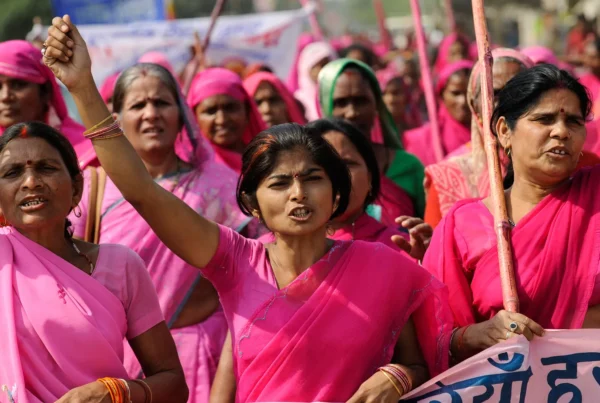In recent years, the increase of food banks across the UK has highlighted widespread poverty and food insecurity. Food banks are seen as an indicator of underlying social and economic issues, such as poverty, inequality, and the impact of government policies. In the UK the plight of millions has seen the emergence of what is now being called the food bank industry.
Bruce McMichael, 1 September 2023
Living costs worldwide have increased in the wake of the global COVID-19 pandemic, the rise of grain and crude oil prices following the 2022 Russian invasion of Ukraine and continuous interest rate hikes of Federal Reserve Banks leading to an increase in the cost of money.
In the UK, the so-called ‘cost of living crisis’ is the result of a significant rise in overall expenses required to maintain a basic standard of living, including necessities such as housing, food, healthcare, education, transportation, and other essential goods and services, while household income has failed to keep pace.
The provision of subsidised or free food is not a new phenomenon in the UK. It played a crucial part in community survival and resistance during the General Strike of 1926 and the bitter coal Miner’s Strike in the mid-1980s.
Food poverty occurs when people cannot afford nutritious food for themselves and their families. Many of these families live in so-called ‘food deserts’, where people have restricted access to supermarkets, fresh and nutritious foods. UK Government statistics report that nearly 4.2 million people (6 per cent of the population) live in food poverty.
To better understand and coordinate responses to the UK’s food poverty crisis, a coalition of charities, including the Trussell Trust, IFAN, Child Poverty Action Group (CPAG), Children’s Society, Joseph Rowntree Foundation (JRF), StepChange and Turn2us have partnered to form the Independent Food Aid Network (IFAN). Food banks in the Independent Food Aid Network (IFAN) report an average 59% increase in need from February to March 2023. That is 17 times higher than this time last year. These figures are in line with the trend of the past several years, which has seen a significant growth in the number of food banks (now more than 2400 nationally).
The increasing financial value of corporate retailers’ agreements have fuelled a growing “food bank industry”. The leading players in this “industry” include surplus food redistribution charity FareShare and the UK’s largest food bank, the Trussell Trust. For the financial year ending April 2023, the Trussell Trust network food banks distributed close to three million emergency food parcels, including more than one million to children. This represents the highest number of parcels the network has ever distributed in a single year. The number of people using a food bank for the first time totalled 760 000 representing the highest-ever level of need – surpassing Covid-19 pandemic figures.
Food bank critics argue that reliance on food banks is the result of shortcomings in the social safety net and the effectiveness of government welfare programmes. Alternative solutions to deal with this issue could include state-funded vouchers redeemable at supermarkets or increasing benefit payments directly to those most in need.
Supporters of the services see them as a temporary solution to food poverty and insecurity which are issues often concealed across the UKs cities, towns and villages. Indeed, many food banks go beyond just distributing food. They also offer educational programs related to nutrition, cooking skills, and financial literacy.
The complex role of food banks has become a topic of national conversation in the UK. Sumi Rabindrakumar, policy chief at The Trussell Trust, speaking to the media in early 2023, said: “Food banks need in the UK is about lack of income, not food. Cooking from scratch won’t help families keep the lights on or put food on the table if they don’t have enough money in their pockets.” Indeed, many food bank users have overcome feelings of embarrassment and shame when driven to use food banks to provide sufficient food for their families.
Meanwhile, Emma Revie, the Trust’s chief executive, suggests there are better solutions than food banks to solve a wealthy country’s social and economic problems. “We need a social security system which provides protection and the dignity for people to cover their essentials, such as food and bills,” she says. Across the Trust’s network, said the organisation, December 2022 became the busiest month for food banks, with a food parcel distributed every eight seconds.
Food is sourced through donations from various supermarkets including unsold stock, private individuals, religious groups and other charitable organisations. Many supermarkets display donation bins close to checkouts where shoppers can donate a tin of beans or a pack of pasta. In contrast to US and many European food banks that warehouse and redistribute (surplus) food to charitable organisations, the UK’s food banks rely on centres that collect, store, and distribute food to people directly.
In Kent, a region in southeast England bordering London, the ruling Council manages the Household Support Fund, using money from the national government’s Department of Work and Pensions to support vulnerable households requesting help in times of rising living costs. Qualifying households are issued vouchers to the value of £100, which can be redeemed towards food at a selection of named outlets and supermarkets.
Within 18 km of Royal Tunbridge Wells, a prosperous town in the country popular with commuters working in London and lying just 80 km south of the city, there are an unprecedented 11 food banks listed.
Much of the power to alleviate the need for food banks lies in the hands of the national government and the use of policy to address the root causes of poverty, such as improving access to education, affordable housing, healthcare, and fair employment opportunities.
Food bank providers are also advocating for national policy changes that can contribute to reducing poverty and food insecurity. This includes measures such as increasing the minimum wage, improving the social safety net, and implementing policies that support affordable housing. Fiscal measures such as boosting wages and social welfare benefits can help individuals and families have greater financial stability, reducing the need for food banks.
There are many problems and equally many apparent solutions. It’s a situation that many in the UK believe should not be happening. The solution to solving food poverty in this country will require an ongoing systemic approach by both food banks and the government.







